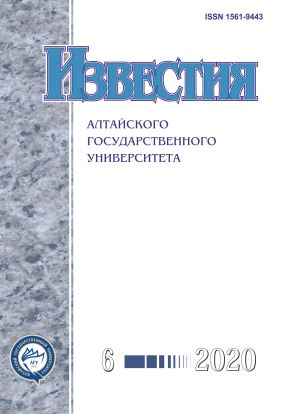British Influence as a Factor of Forming the Modern Identity of Hong Kong
УДК 94(420).086+94(510).09 ББК 63.3(4Вел)6+63.3(5Кит)6
Abstract
The article considers the process of forming the modern identity of Hong Kong and proves underlying role of the British influence in this process. It is pointed out that the process goes back to the 19th century, when well-off Chinese started to move to the British Hong Kong in trying to find more comfortable conditions for life and business and reaches its pinnacle in 1970-1980, when Hong Kong not only becomes economically developed but transforms into a factor of cultural influence in the region mainly due to the promotion of its original (civilization-state) pop-culture. It’s stated that Hongkongers use cultural and semiotic resources to emphasize specificity of their cultural code. And particularly these kinds of resources played the biggest role in this process. Authors conclude that the British influence was one of the structural factors which determined the nature and contents of Hong Kong’s identity. At the same time, they note that the process of its forming is based on evolved for centuries Chinese national tradition which contains self-preserving mechanisms which make it possible for Hongkongers to interpret external cultural drawings in a unique way.
Downloads
Metrics
References
Иванов П.М. Гонконг: история и современность. М., 1990.
Ngok M. Political Development in Hong Kong: State, Political Society, and Civil Society. Hong Kong, 2007.
Ash R., Ferdinand P., Hook B., Porter R. Hong Kong in Transition: The Handover Years. London, 2000.
Carroll J.M. A Concise History of Hong Kong. Lanham, 2007.
Fan S.C. The Population of Hong Kong. Hong Kong, 1974.
Clarke D. British Colonial Interest in China: Beginnings and Endings // Localities. 2012. Vol. 2. URL: https://hub.hku.hk/bitstream/10722/180116/2/Content.pdf.
Joseph J.E. Language and Identity - National, Ethnic, Religious. London, 2004.
Morris J. Hong Kong. Hong Kong, 1988. URL: https://archive.org/details/hongkong00morr/mode/2up.
Chen L.L. Writing Chinese: Reshaping Chinese Cultural Identity. New York, 2006.
Gerard A.P. Hong Kong’s Reunion with China: The Global Dimensions. New York & London, 1997.
Demographic Trends in Hong Kong 19812001. URL: https://www.statistics.gov.hk/pub/B1120017012002XXXXB0100.pdf.
Tsang S. A Modern History of Hong Kong. London, 2007.
Ming K.C. The Challenge of Hong Kong’s Reintegration with China. Hong Kong, 1997.
Are You Proud of Formally Becoming a National Citizen of China after the 1997 Handover? URL: https://www.hkupop.hku.hk/english/
Hong Kong Yearbook 2000-2005. URL: https://www.yearbook.gov.hk/2018/en/index.html.
Joseph Y., Cheng S. The Hong Kong Special Administrative Region in Its First Decade. Hong Kong, 2007.
Cheng K. Hongkongers Identifying as ‘Chinese’ at Record Low; Under 10% of Youth ‘Proud’ to Be Citizens - poll // Hong Kong Free Press. 28 June 2019. URL: https://hongkongfp.com/2019/06/28/hongkongers-identifying-chinese-record-low-10-youth-proud-citizens-poll.
Harmes R. Localism and the Design of Political Systems. Exeter, 2017.
Izvestiya of Altai State University is a golden publisher, as we allow self-archiving, but most importantly we are fully transparent about your rights.
Authors may present and discuss their findings ahead of publication: at biological or scientific conferences, on preprint servers, in public databases, and in blogs, wikis, tweets, and other informal communication channels.
Izvestiya of Altai State University allows authors to deposit manuscripts (currently under review or those for intended submission to Izvestiya of Altai State University) in non-commercial, pre-print servers such as ArXiv.
Authors who publish with this journal agree to the following terms:
- Authors retain copyright and grant the journal right of first publication with the work simultaneously licensed under a Creative Commons Attribution License (CC BY 4.0) that allows others to share the work with an acknowledgement of the work's authorship and initial publication in this journal.
- Authors are able to enter into separate, additional contractual arrangements for the non-exclusive distribution of the journal's published version of the work (e.g., post it to an institutional repository or publish it in a book), with an acknowledgement of its initial publication in this journal.
- Authors are permitted and encouraged to post their work online (e.g., in institutional repositories or on their website) prior to and during the submission process, as it can lead to productive exchanges, as well as earlier and greater citation of published work (See The Effect of Open Access).








